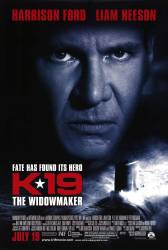
Question: Why attempt Russian accents in a film that is purely Russian? The star, Harrison Ford, doesn't even pretend to be Russian. Why should anyone else?

Question: How come Justine never tells Phil, apparently, about Bubba blackmailing her to have sex with him? Phil found out that she had an affair anyway, so Bubba can no longer threaten her.
Answer: I think she wanted to put the whole situation behind her. When Phil asked if she cheated with the security guard from work, she let him believe it. She was able to convince him that the baby was definitely his, not the guard's. Telling him about Bubba would only make the situation worse. Also, Bubba had seen her with Holden, so he could try and convince Phil that she was lying about the security guard. It would create a bigger mess. She decided to accept her life as it was.
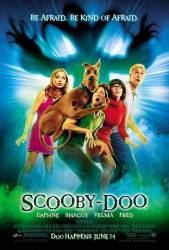
Question: When the gang kicked Scrappy out, how did he get to Spooky Island and learn about the Daemon Ritus?
Answer: It's never explained. We're just left to assume he was somehow able to.
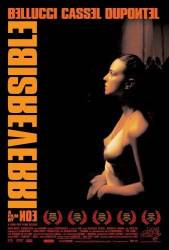
Question: What is the meaning of the flashing lights at the end of the movie (after the camera pans from Alex reading the book at the park)?
Chosen answer: The flashing lights are to create a sense of uneasiness again. Gaspar Noe uses low frequency sound to create nausea, headaches, and disorientation in the beginning and uses it again here to make the viewer feel sick after the mood changes dramatically. Also it symbolizes the chaos that occurs in the universe & how life can easily spiral out of control as it does in the movie.
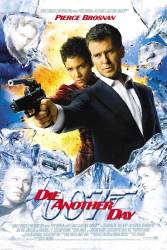
Question: In "The World Is Not Enough" Bond, using his intuition, correctly assessed that Elektra King had sided with the villain. So why did he never suspect for a second that Miranda Frost had done the same in this film?
Answer: Bond's suspicions about Elektra King were triggered by his discovery that her head of security, Davidov, was working with Renard. With Miranda Frost, there was nothing that would have led Bond to believe she was a double agent working for Graves/Moon in any capacity other than her undercover MI6 assignment.
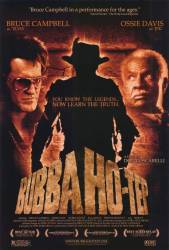
Question: When Elvis trades places with Sebastian Haff, his limo plate is AZN-700. Later when he is driving Haff's car, the plate is the same. Obviously two cars with different owners can't have the same plates, so it's probably a reference of some sort. Anyone know if that's the case, and if so, what?
Chosen answer: There's no significance I can find anywhere for the number "AZN-700" - it's just a fake plate they used twice due to the limited budget, and its repeated use is a mistake.
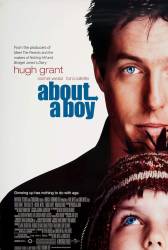
Question: It says during the final credits that several scenes from Billy Elliot were show throughout the movie. I don't remember seeing these scenes. When are they shown?
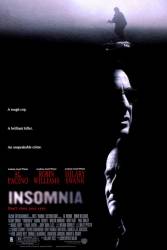
Question: Why does Dormer switch to a backup gun while chasing the killer in the fog? It is never explained.
Answer: Plot device to make Ellie look like a super sleuth remembering Dormer even carries a backup. When Hap and Dugger were comparing guns Hap says he and Dormer both carry S&W .45s. This makes the 9mm casing Ellie found a complete mystery to everyone else. So why the switch? Dormer's primary might be empty, but this is the first time Dormer shoots and all the characters act like there are only two shots fired in the fog, so for it to be empty he would have to be terribly sloppy. If he's so bad he forgot to load his gun it's equally likely he left the safety on. Maybe Dormer is just so used to being a dirty cop he instinctively uses the backup whenever possible to create an alibi. Ultimately, there is no explanation for this in the film, and if blink you don't even see the switch and are very confused when the 9mm casing shows up in the first place, if Nightmute carries.40, and Dormer .45, then 9mm has no place at all.
In the Netflix version with subtitles, when Dormer fires his primary weapon, the subtitle says "gun clicks." Dormer briefly looks at his gun and then pulls his secondary weapon. Nolan may have intended this to be ambiguous so the viewer doesn't know whether it was an accident or intentional (Nolan would never leave a "mistake" in the final edit - in fact, in interviews, he said he watched the movie at least a hundred times while editing), but the subtitles seem to put this debate to rest.
Chosen answer: Because he ran out of bullets in his first gun.
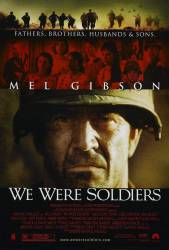
Question: Would a sergeant-major participate in a mission?
Answer: This one did, everything ascribed to him in the film was true.
CSM Plumley's records show that he served in 320th Glider Field Artillery Battalion as a scout. The 320th participated in two glider assaults in the European Theater. Also, Plumley never served in Korea during the Korean War, so he couldn't have participated in one of the two combat jumps of that conflict. His record book indicates he was at Ft. Campbell, Kentucky (1951 to early 1953) when he received orders to Germany. Finally, he never claimed to have made any combat jumps in his career.
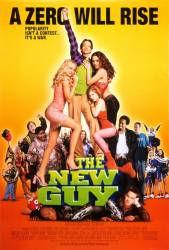
Question: Towards the end, just after we find out the Eliza Dushku changed herself a bit too, after she says "no kidding" to Dizzy, what does he say? I can't make it out, and that line's not subtitled on the DVD.
Chosen answer: He says "I owe you one" in Albanian, like Eliza's character did earlier in the movie.
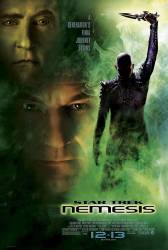
Question: Wouldn't Shinzon have had to know where the enterprise is being assigned in order lure them to pick up B-4? Data's brain has a safeguard so his positronic energy signature cannot be tracked. And how did he know a different ship instead of the enterprise wouldn't come to Remus to pick up B-4?
Answer: Long range sensors can show the general location of specific ships (this is part of the reason Romulans and Klingons use cloaking devices). All Shinzon has to do is find a remote planet close enough to the Enterprise that would cause them to be the most prudent choice to investigate. It's definitely a gamble but not one that is made without calculation.

Question: Which hotel is used for filming the one where Marissa works?
Chosen answer: Two hotels were using during filming, The Roosevelt Hotel and The Waldorf-Astoria, both located in New York City.

Question: Does Pakia die?
Answer: No, she doesn't die. Summary from Wikipedia: Paikia climbs onto the back of the largest whale and coaxes it to re-enter the ocean. The whale leads the whale pod back into the sea; Paikia submerges completely underwater before being thrown off the whale's back by the tide. The spectators fear she has drowned. When Paikia is found alive and brought to the hospital, her grandfather, Koro, declares her the new tribal chief. At the end, Paikia and her family are on the beach, watching the completed canoe being launched into the sea for its maiden voyage.

Question: What's the point of the orange and the marijuana? I didn't quite get that.
Answer: I've been told it's to keep the marijuana moist. The moisture from the orange peel keeps the stuff fresh so that it burns longer. The same happens with an apple peel.
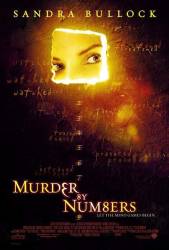
Question: Could someone please explain what the title means and what numbers have to do with anything? I'm not a native English speaker and I don't get it.
Answer: It's like a paint-by-numbers, where a picture is outlined on a board, and each little piece of it has a number corresponding to a different color of paint. You paint in the spaces based on what the numbers tell you. Murder by numbers refers to the boys following all the "rules" about how to create the perfect murder: choosing a victim at random, etc. They're murdering based on what they've been told is the right way to do it.
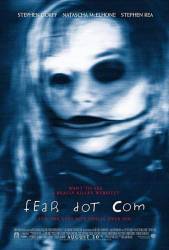
Question: How did that German male die? I would also like to know who made the website.
Answer: The german male died from the hemoraging ebola-like disease that everyone who views the site gets. DOn't know any other way to describe it. As for the who made the website part, I have no idea.
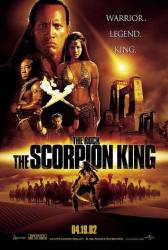
Question: In Roger Ebert's review, he says "...Mathayus intones, 'As long as one of us still breathes, the sorcerer will die.' See if you can spot the logical loophole." I can't - what's the problem with that line?
Chosen answer: By the way Mathayus is saying it, it sounds like he is saying as long as him or the sorcerer still breathes, either he or the sorcerer will die, but he is trying to say as long as one of the Akkadians are breathing, they will not stop trying to kill the sorcerer until he is dead.
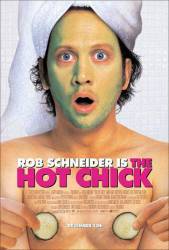
Question: According to the shop owner, Princess Nawa didn't know that she had to bring the earrings back together. She spent the rest of her life as a servant. However, in the past, Princess Nawa tells her servant, "Soon you will live your life in jewels and not chains," as if she expected the servant to remain in her place. Was she just lying and hoping to change back after the wedding?
Answer: She was lying to the servant. Most likely, the servant was terrified and might have run away from the situation. But according to the shop owner, the rich husband died on the wedding night, so the servant remained the Princess and lived in the lap of luxury.
Not sure about this because, if she planned to switch places for the wedding only, she would still have to deal with a lifetime of being married to the man she disliked. She would only be avoiding the wedding ceremony.
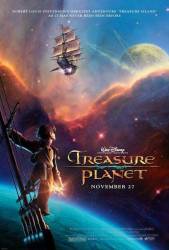
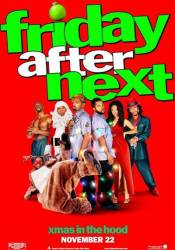
Answer: Harrison Ford does attempt a Russian accent in this film. It's a very slight, very bad attempt but he's definitely trying. Audiences come to expect accents in films such as these for a heightened sense of immersion. Hearing American accents from supposedly Russian characters can sometimes be jarring to an audience, even if the characters are speaking English. This of course isn't always the case and plenty of films have actors speaking in their natural accents while they are playing foreign characters. The director of this film chose to have his actors speak with Russian accents, with extremely poor results pretty much all around.
BaconIsMyBFF